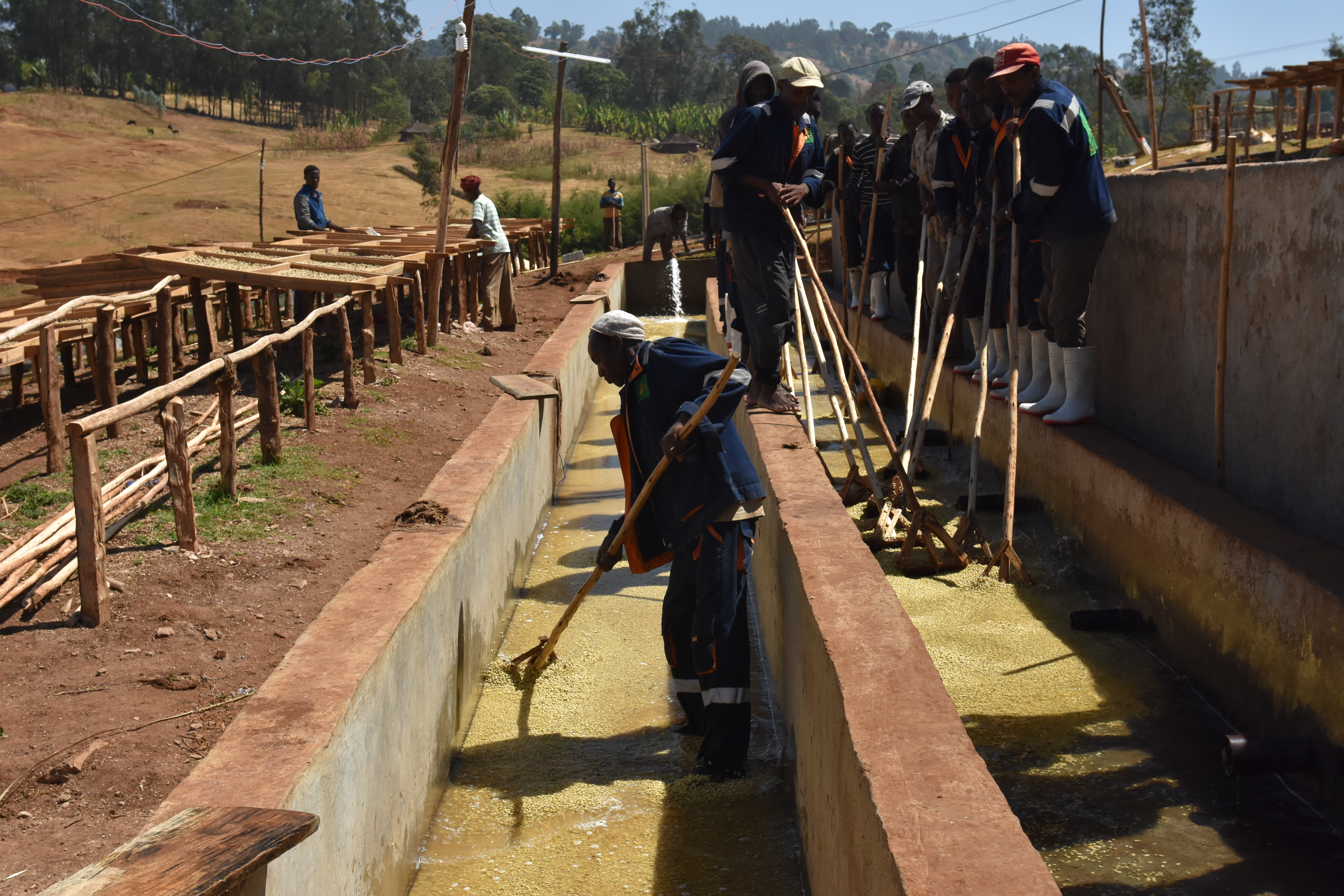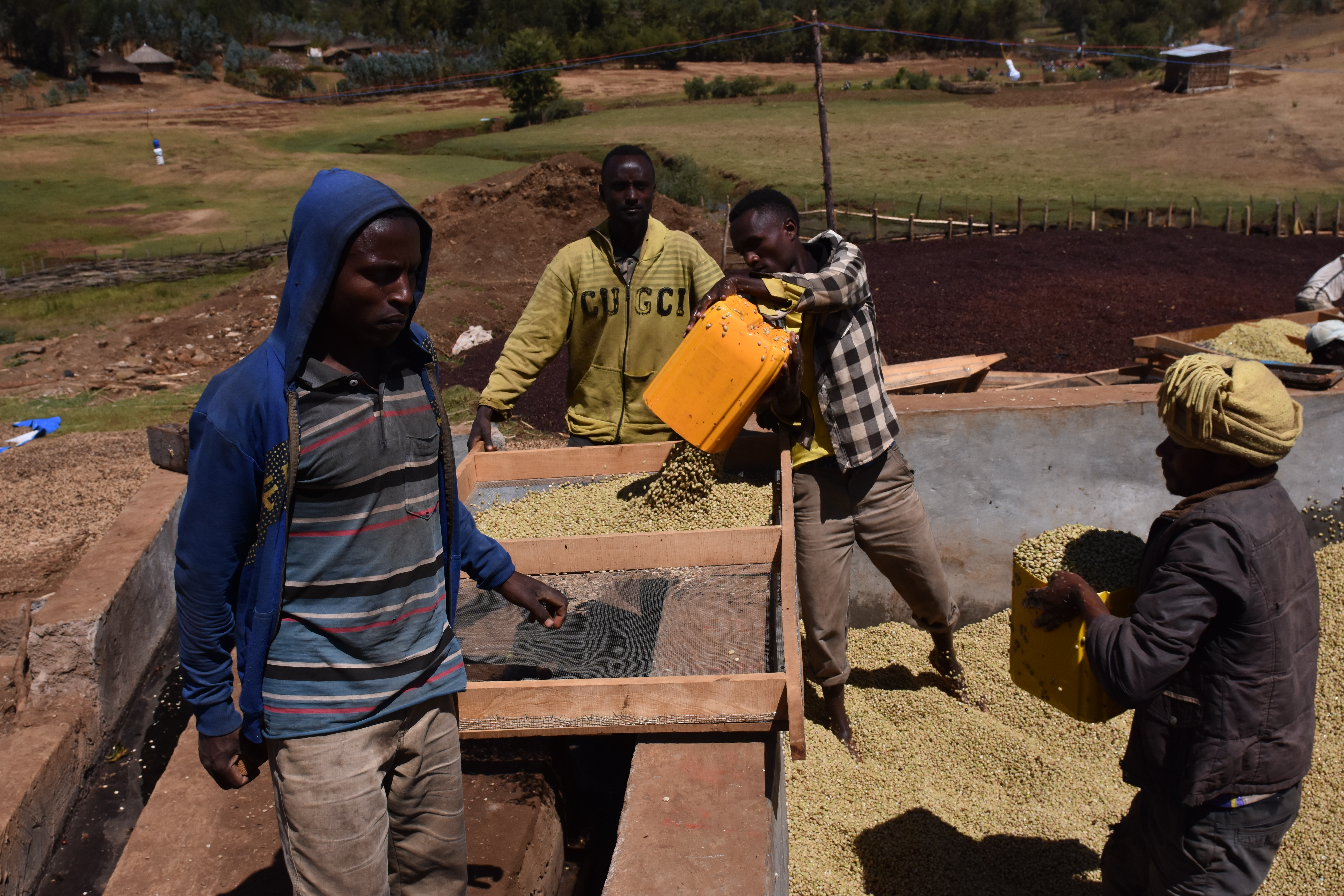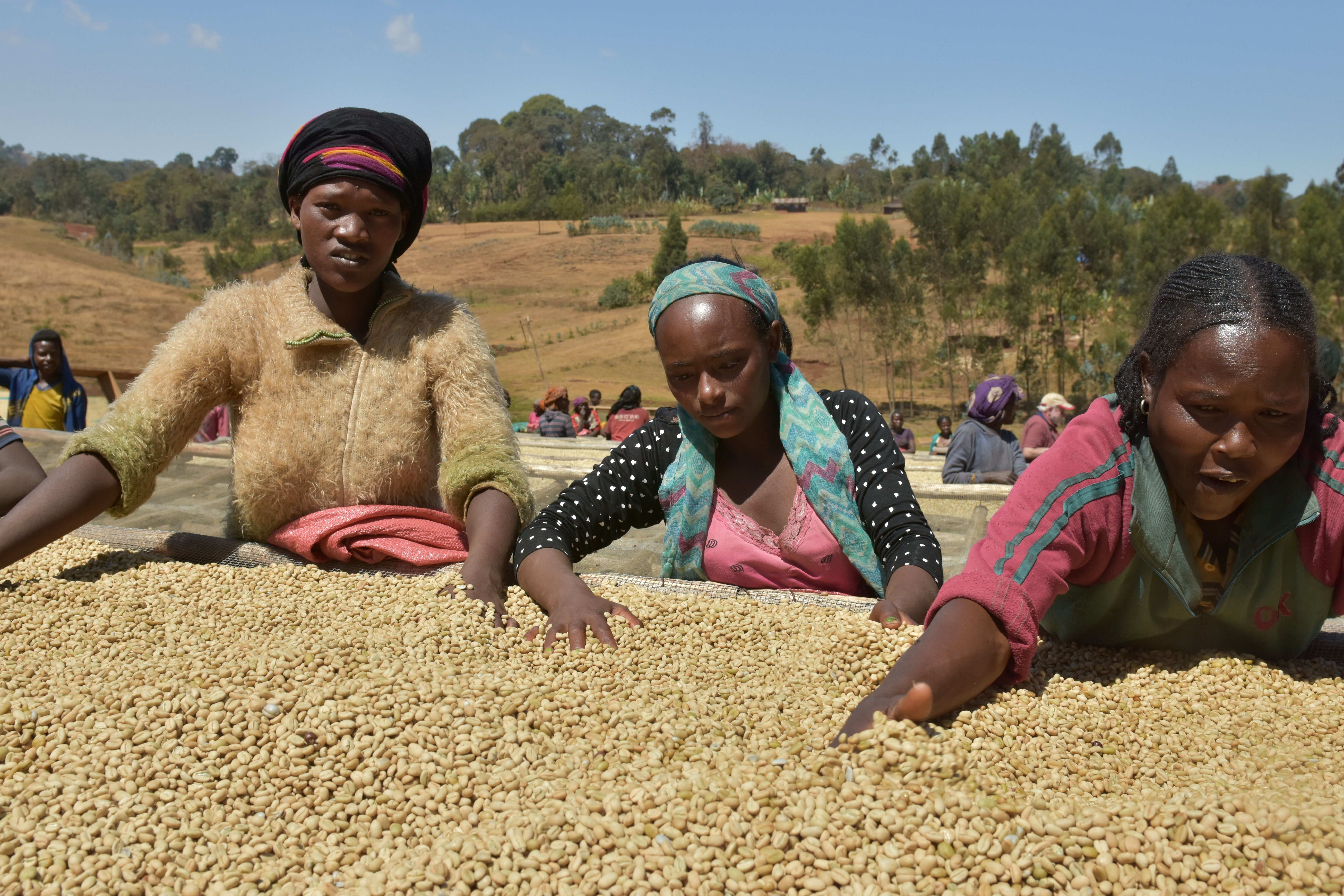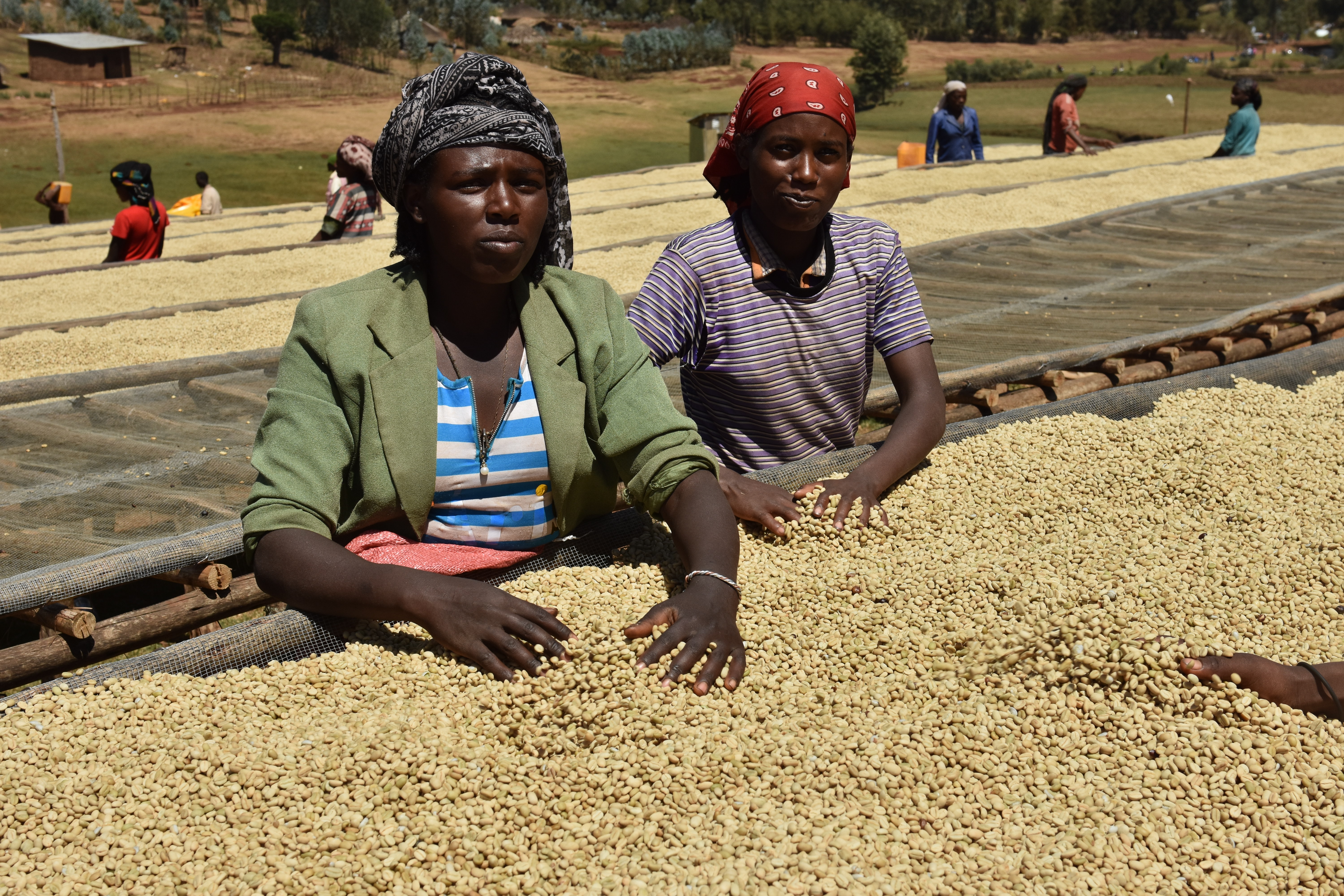At some of Ethiopia’s most extreme altitudes lies Guji’s Uraga region, a dense, mountainous forest that spans almost a thousand miles. Within this huge forest lie three smaller forests, and from these three forests—Yabitu Koba, Larcho Torka, and Harsu Haro—come some of the most extraordinary and sought-after coffees on our menu. These coffees are coming in soon, with our first containers having arrived, and they’ll go fast, so if you’re interested, get in touch.

Despite the incredible quality found in Guji Uraga, you wouldn’t have found these coffees on the market ten years ago—at least, not as Guji. Back then, Guji coffees lived under the Sidamo subhead, and the stellar coffees of Guji Uraga were trucked across the border into Yirgacheffe, where they could find a slightly higher price due to better name recognition. In 2010, Aleco tasted these coffees and recognized that they were unique, second to none, and worthy of differentiation. Now, eight years later, the three forests themselves and the distinct coffees within them deserve their own differentiation.

In Southwest Uraga lies the smaller Ugo Begne forest and Yabitu Koba village, where the Hana Asrat washing station produces a truly singular coffee. Managed by lifelong coffee trader Feku Jebril, Yabitu Koba brings with it incredibly ripe red fruits, blazing acidity, and classic Ethiopian florals like bergamot and jasmine. Originally hailing from Dilla, Gedeo’s capital, Feku sold the huge wet mill he used to own in order to move deeper into the forest, managing coffee production at Yabitu Koba with a laser focus on quality.
Heading northeast towards the center of Uraga, sky-high at 2510 masl, lies Larcho Torka forest. Managed by Feku’s brother Abdi Jebril, also a lifelong coffee trader, Larcho Torka coffee brings with it elegant flavors of candied lilac, a balanced lemonade acidity and dense, sugared sweetness. Abdi’s work at Larcho Torka is characterized by the same quality focus as Feku’s.
 Towards Northeast Uraga lies the smaller Bire forest, a newer producing area where the coffee trees are young, only four to six years old. High up in the mountains at 2300 masl lies the Harsu Haro washing station, producing a coffee that offers the dense sweetness of raspberry and currants and the ripe, balanced acidity of clementine and yellow peach.
Towards Northeast Uraga lies the smaller Bire forest, a newer producing area where the coffee trees are young, only four to six years old. High up in the mountains at 2300 masl lies the Harsu Haro washing station, producing a coffee that offers the dense sweetness of raspberry and currants and the ripe, balanced acidity of clementine and yellow peach.
In all three forests, absolutely meticulous processing puts its signature on these coffees: first, they pass through McKinnon depulpers, then move into washing channels where they lose the rest of their mucilage. They move into soaking tanks for another 12 hours overnight, and in the morning, they’re laid on drying beds for eight to ten days.

The next step is key to the incredible shelf-life of Guji Uraga forest coffees: after drying, they move into the warehouse and rest for a week after drying to condition and stabilize. After that, the washing station teams hand-sort through the parchment, selecting only the cleanest coffee. Because of their incredible potential, consistently realized through meticulous processing, Guji Uraga Forest coffees not only come in sparkling, they continue to bloom and get even better over the course of the year. In coffee, there are two ways to do business: produce the most coffee, or produce the best, and Yabitu Koba, Larcho Torka, and Harsu Haro produce the best. These coffees will be here before you know it, so get in touch.
